In long underwear and nightgowns, the men, in white slips, the women. That's how this Wednesday, 29th of August, around 40 extras, dressed to the nines, recreated the tradition of the Holy Bath of São João da Degola, on the beach of Manta Rota, in the municipality of Vila Real de Santo António.
As in ancient times, there were snacks and wine, accompanied by accordion music, in a strange way of going to the beach that aroused curiosity and excited the many tourists in that bathing area.
In other times, the inhabitants of the Algarve mountains would get together and camp on various farms in Manta Rota, where they would sleep on straw. "They arrived on the 28th of August, with donkeys, horses and carts," he told the Sul Informação Romano Justo, from Associação A Manta, organizer of this initiative, in partnership with the Municipality of Vila Real de Santo António.
The next day, "they got up and took their first shower", in the morning, as happened yesterday in the historical recreation. The extras donned costumes made by Romano's wife and took with them the typical baskets with bread, cheese, sausage and wine, to tuck their stomachs after a few dips, which, in the past, were thought to provide immunity against certain diseases, such as 'colds' or flu'.
In the historical recreation, two musicians ensured the animation with popular themes such as “A Mulher Gorda”, to the sound of an accordion, while offering food and drink to those who were watching.
According to Romano Justo, 81 years old, in former times it was the inland Algarve who followed this tradition, returning to the sea twice more on the journey: at noon and in the afternoon. They were sea baths that were worth the whole year.
But then, some people drowned during the bath, which, after all, was not so holy. «For some years there was bad weather, the so-called uprising», which, together with «currents of water», led to the death of some people, who were only used to «swimming in streams». And tradition was lost, all the more because technological evolution, with the appearance of new means of transport, made carts obsolete and facilitated quick connections between the mountains and the coast.
After decades of oblivion, «more than 20 years ago» the festivities were recovered, now as a historical recreation.
In the past, recalls Romano Justo, the animals also went into the water with people, so that the benefits of the holy bath would also affect them, but now "they only appear in the procession, because the Captaincy no longer authorizes them."
This festival of bathing in the sea is also called São João da Degola because it intends to mark the date on which São João Baptista was beheaded.
Although the Holy Bath is the highlight, the festivities in honor of São João da Degola started on August 17th and ended last night, after a concert, with fireworks on the beach at Manta Rota.
Photos: Golden Gonçalo | Sul Informação
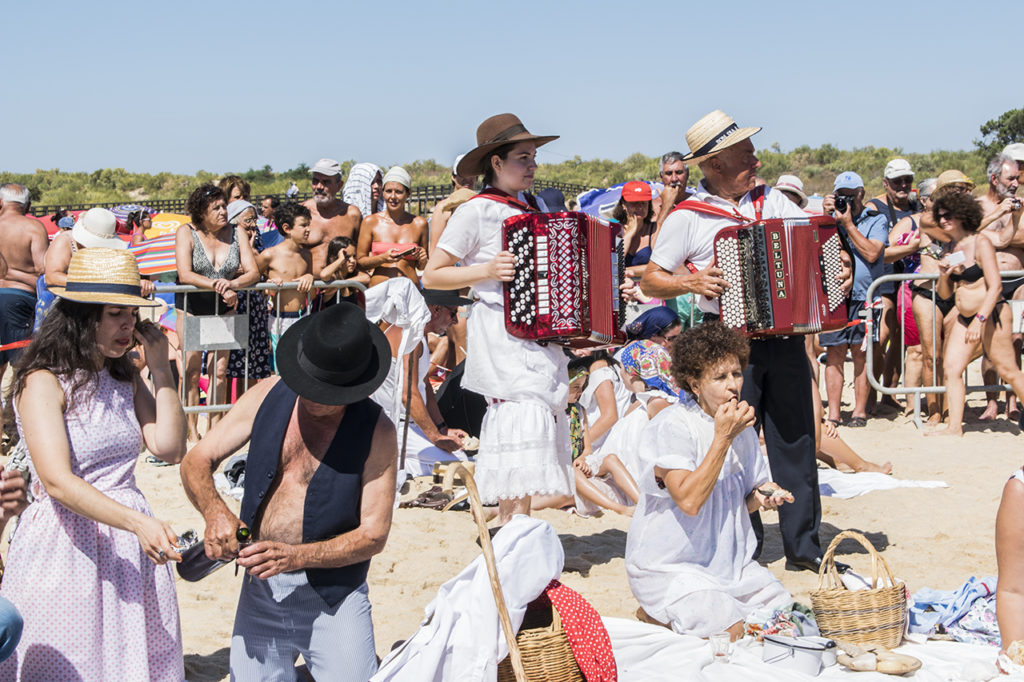
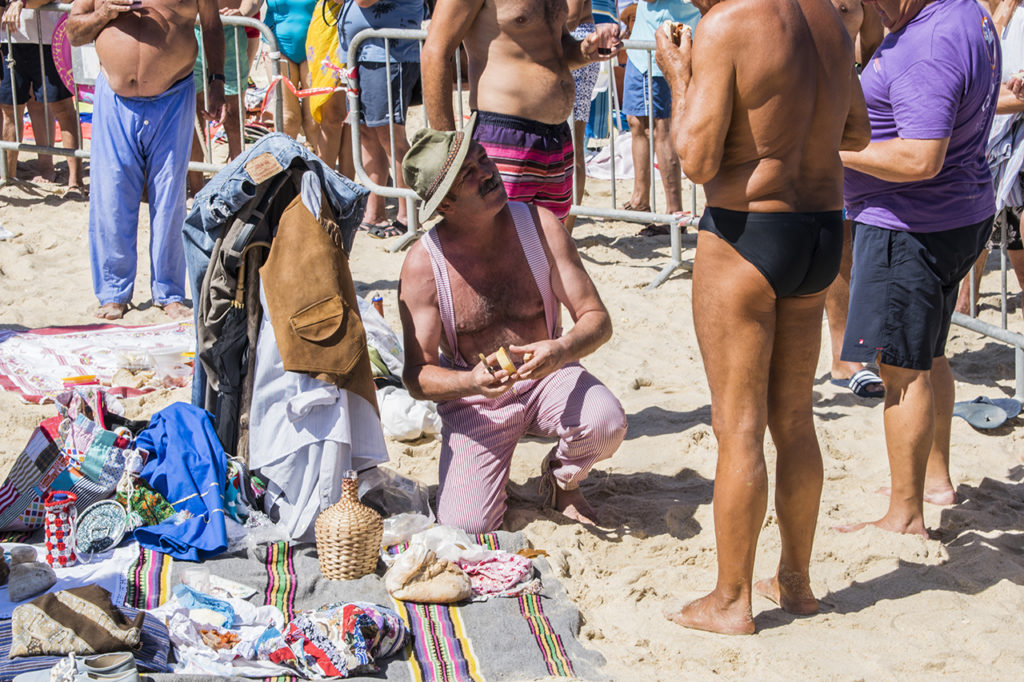
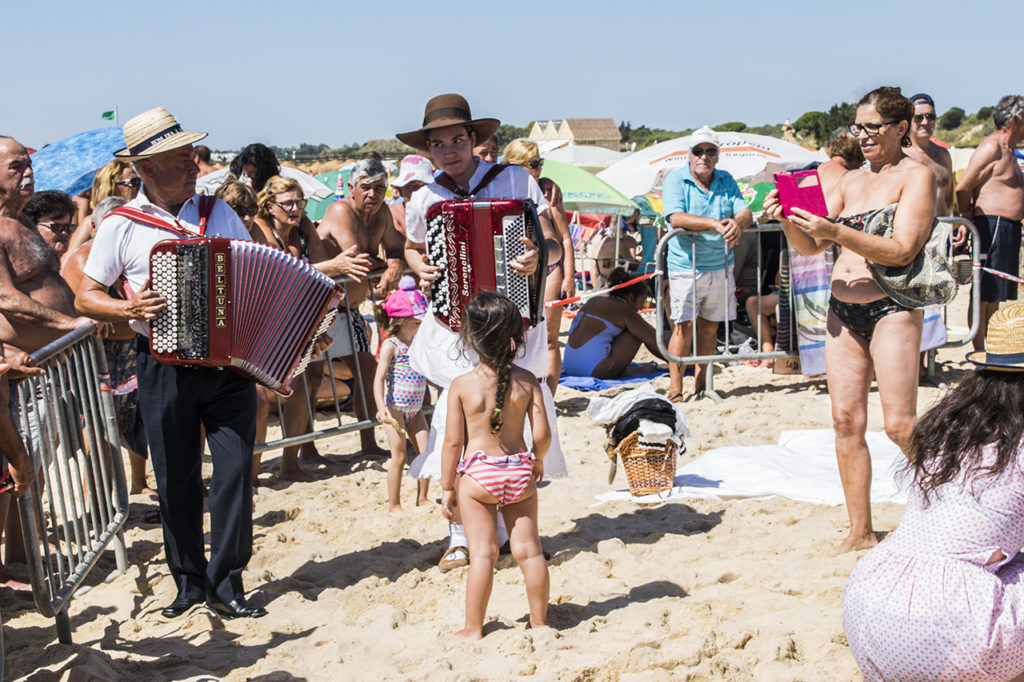
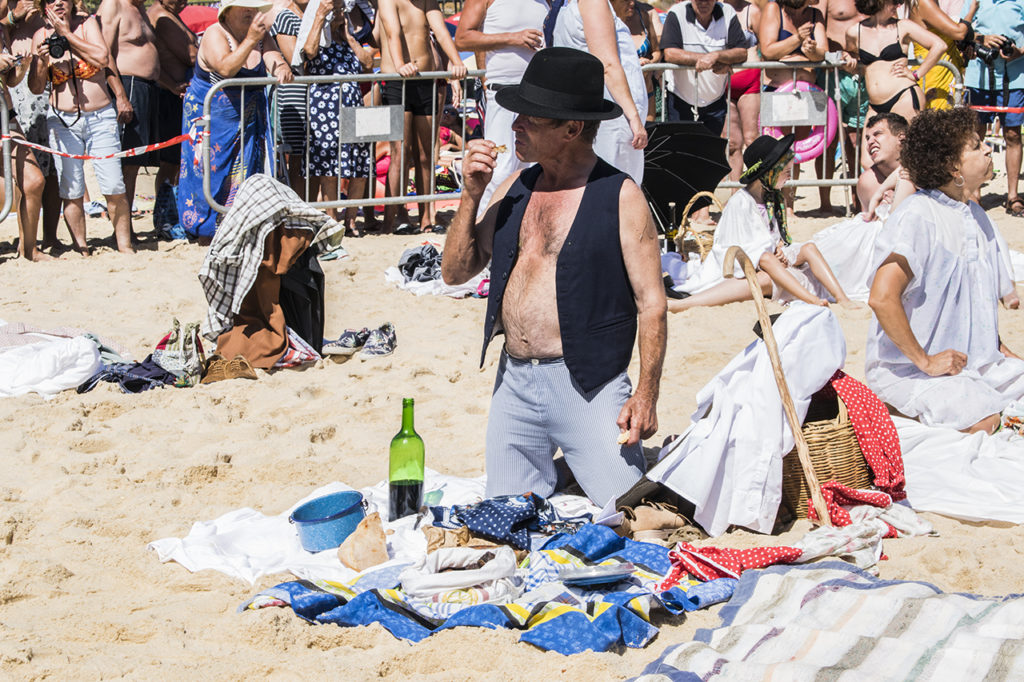
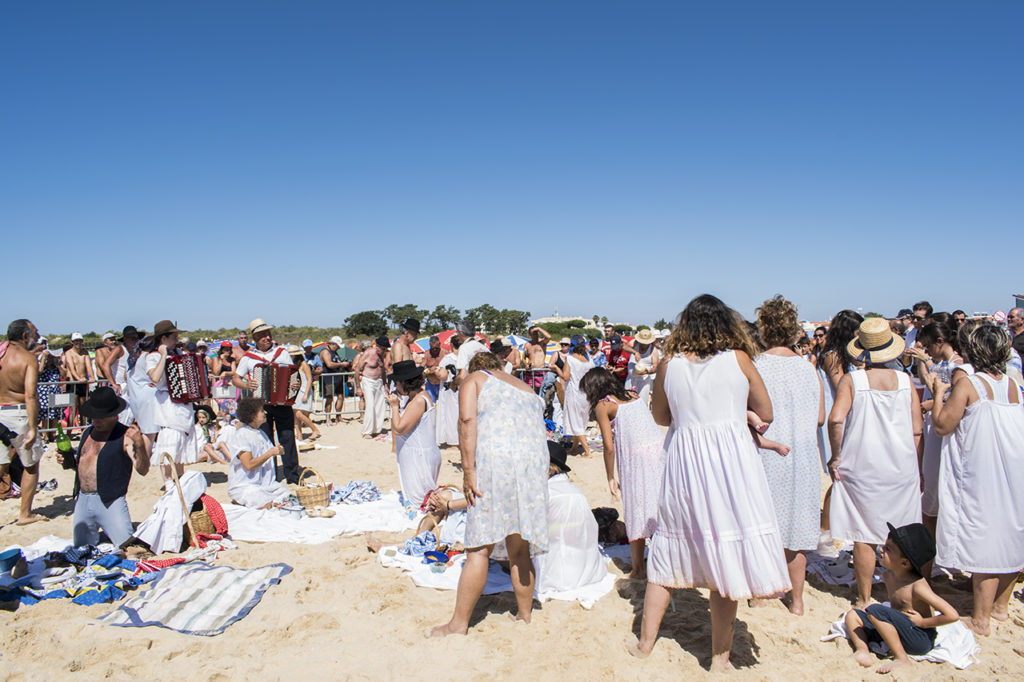
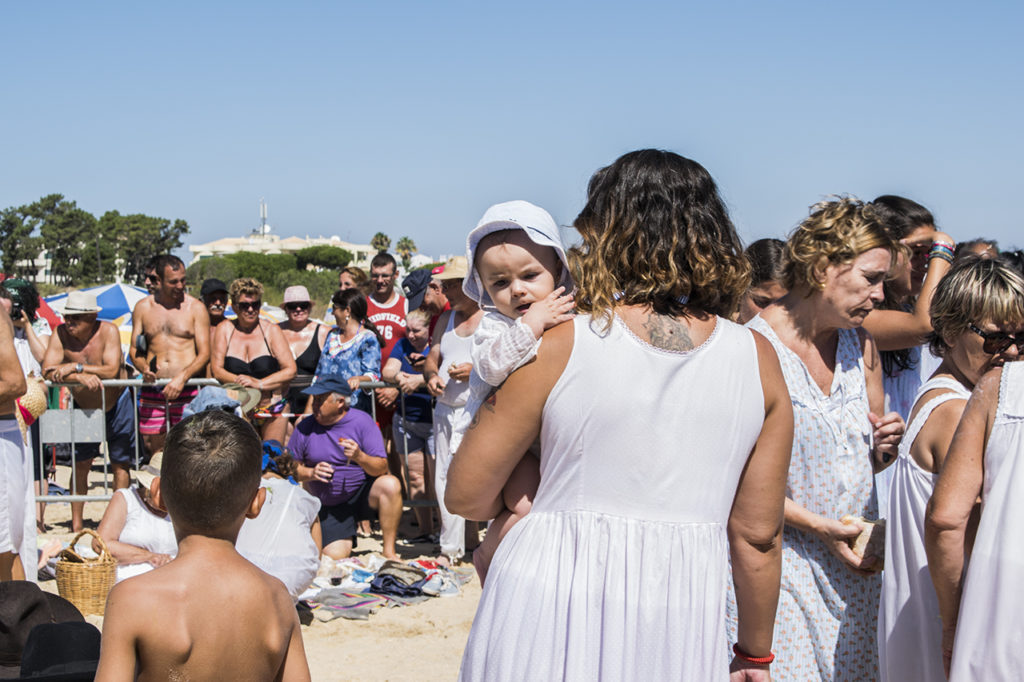
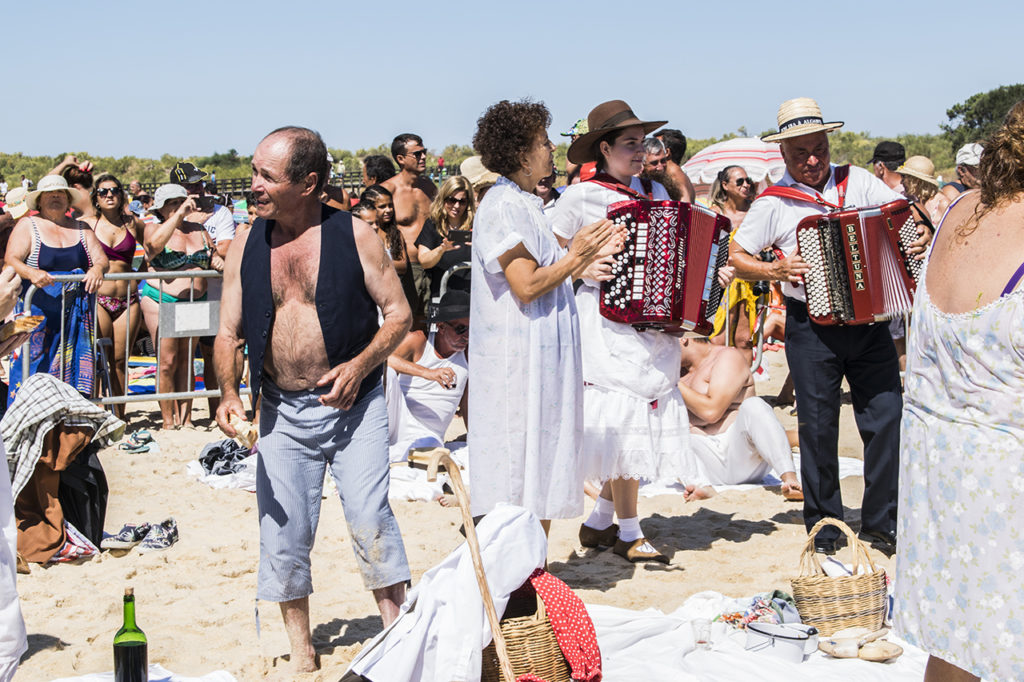
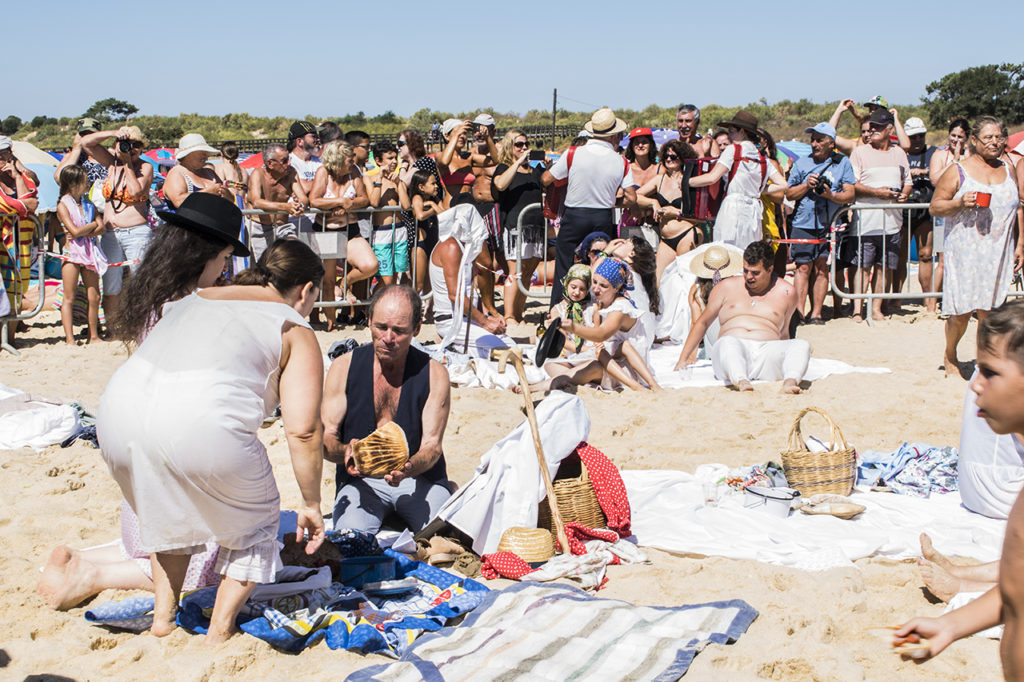
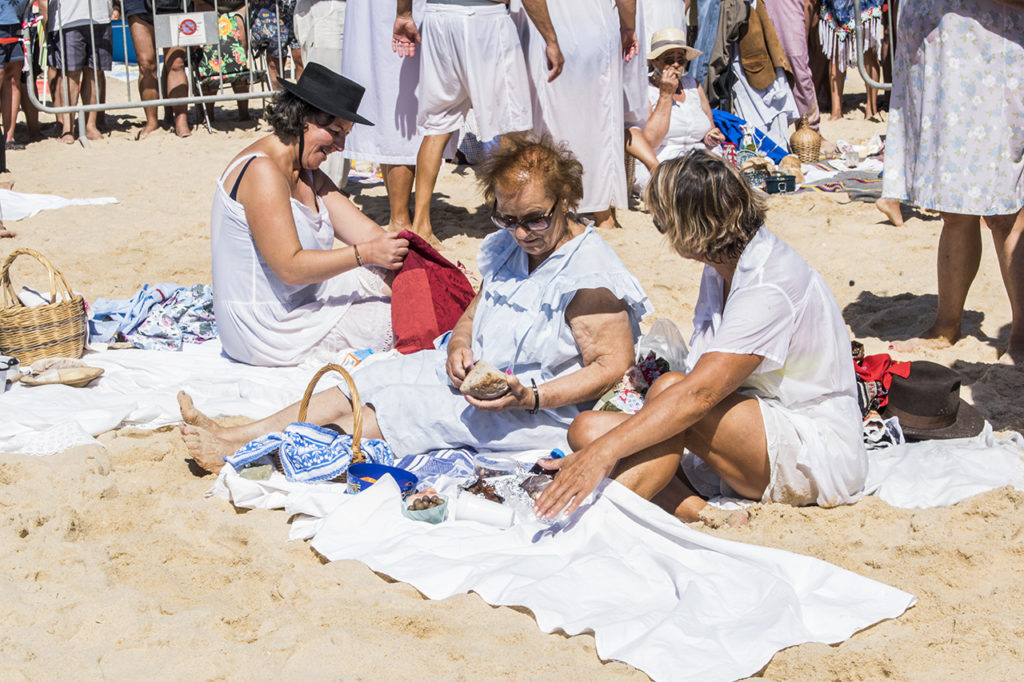
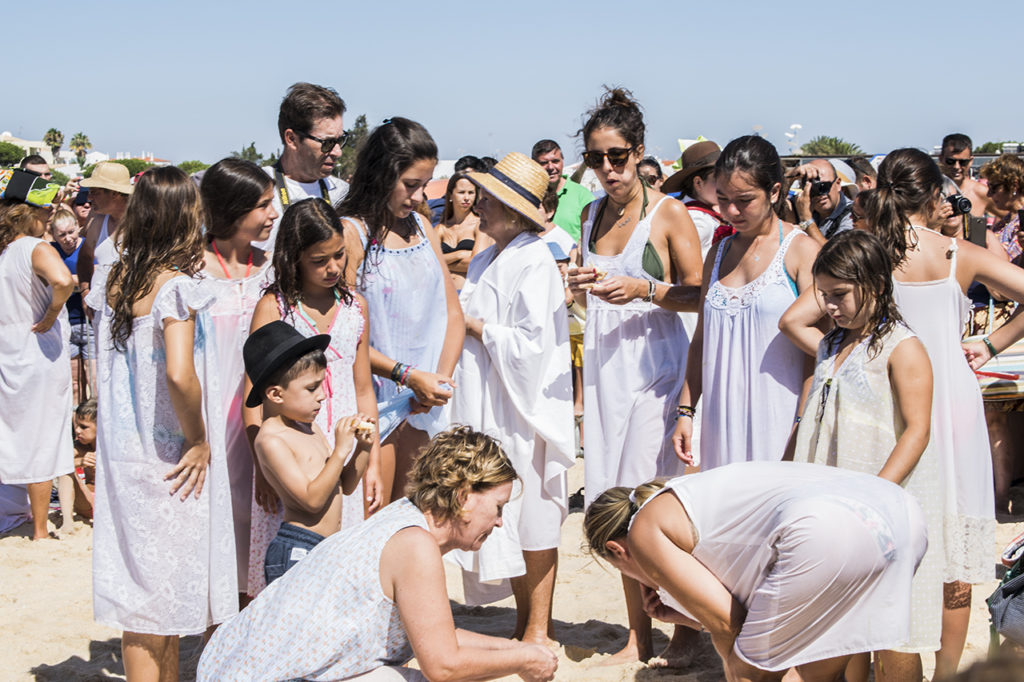
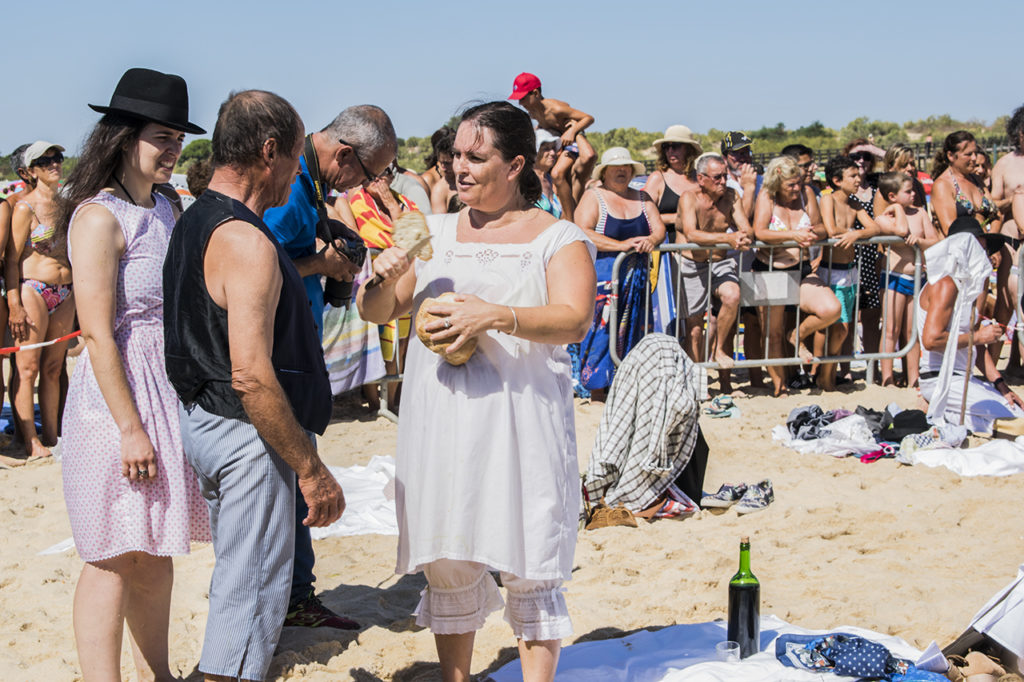
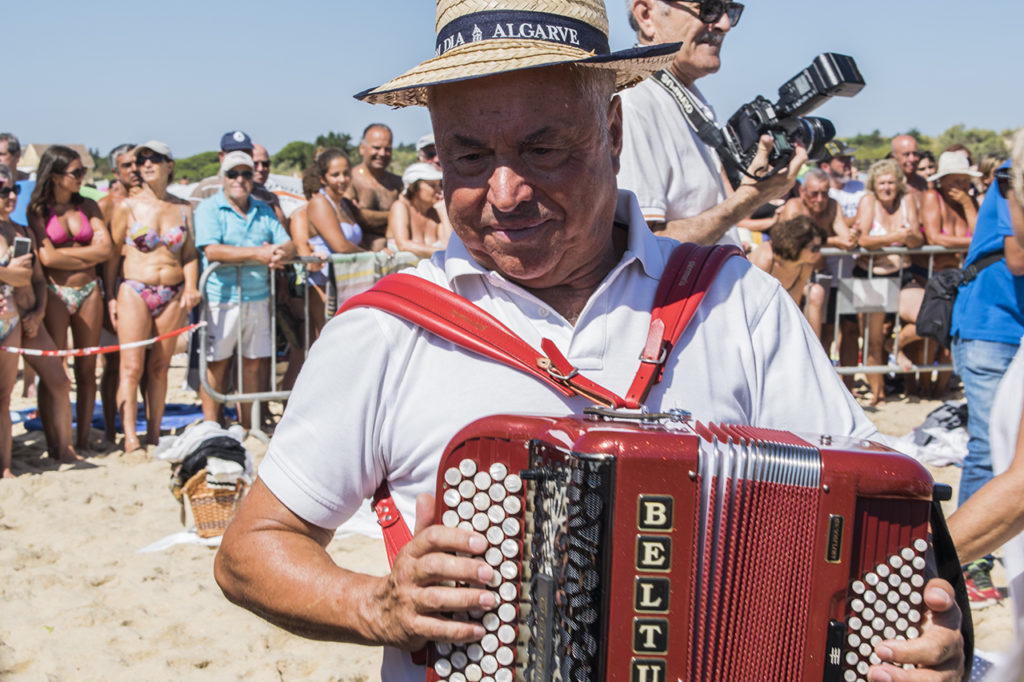
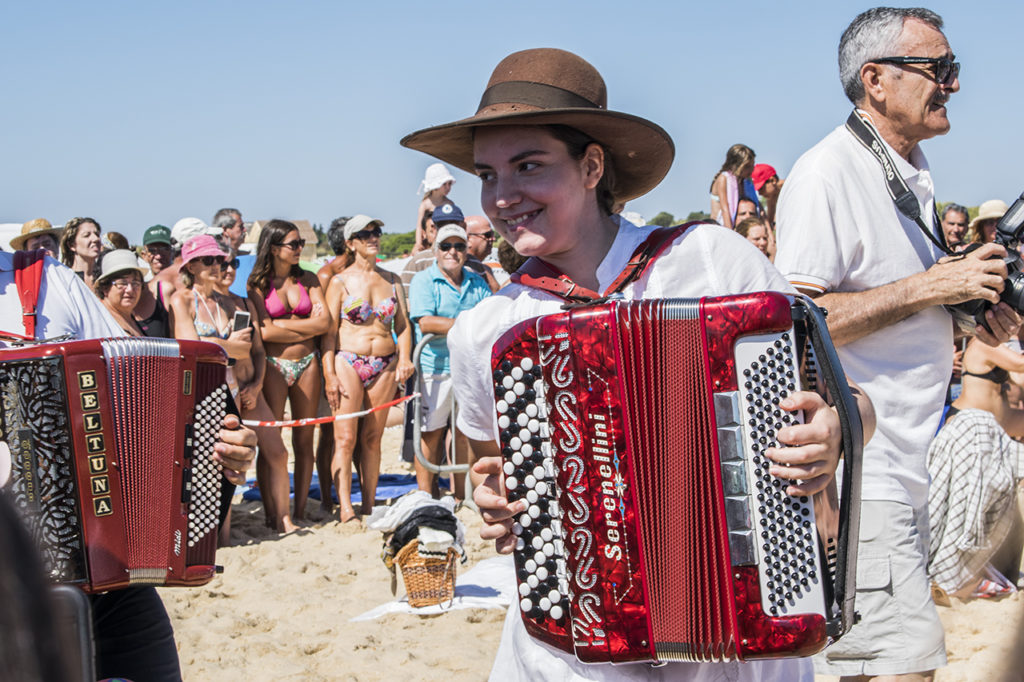
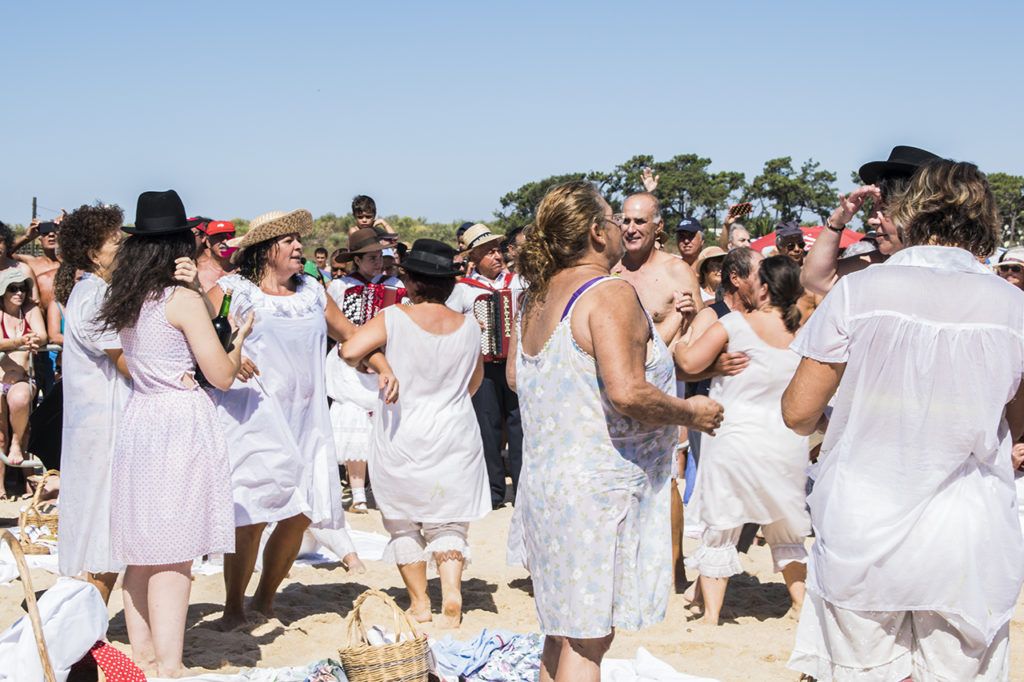
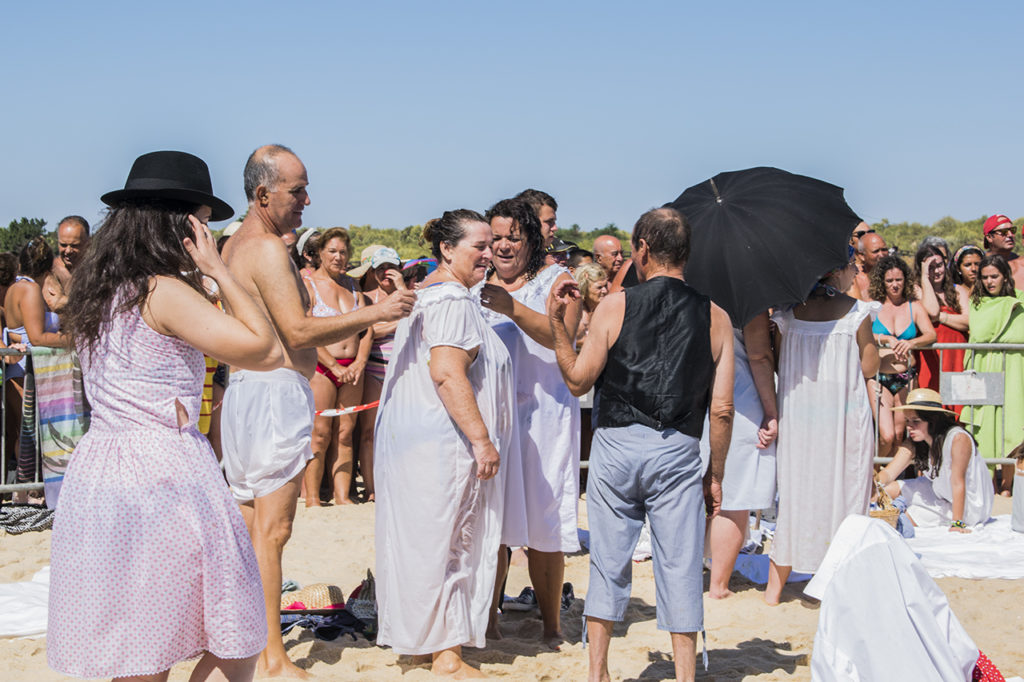
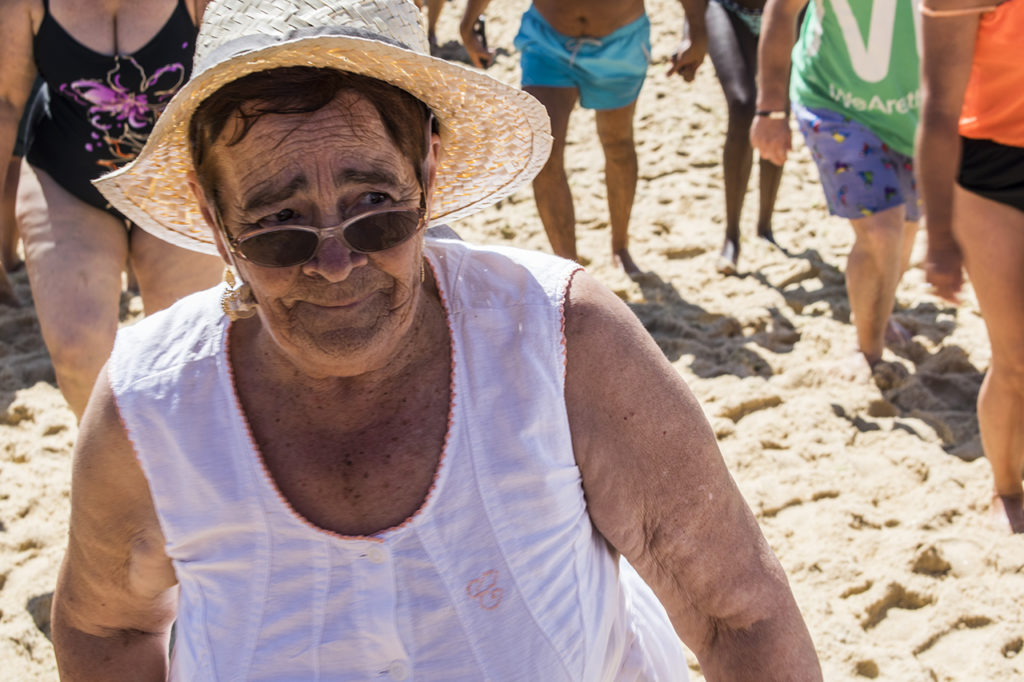
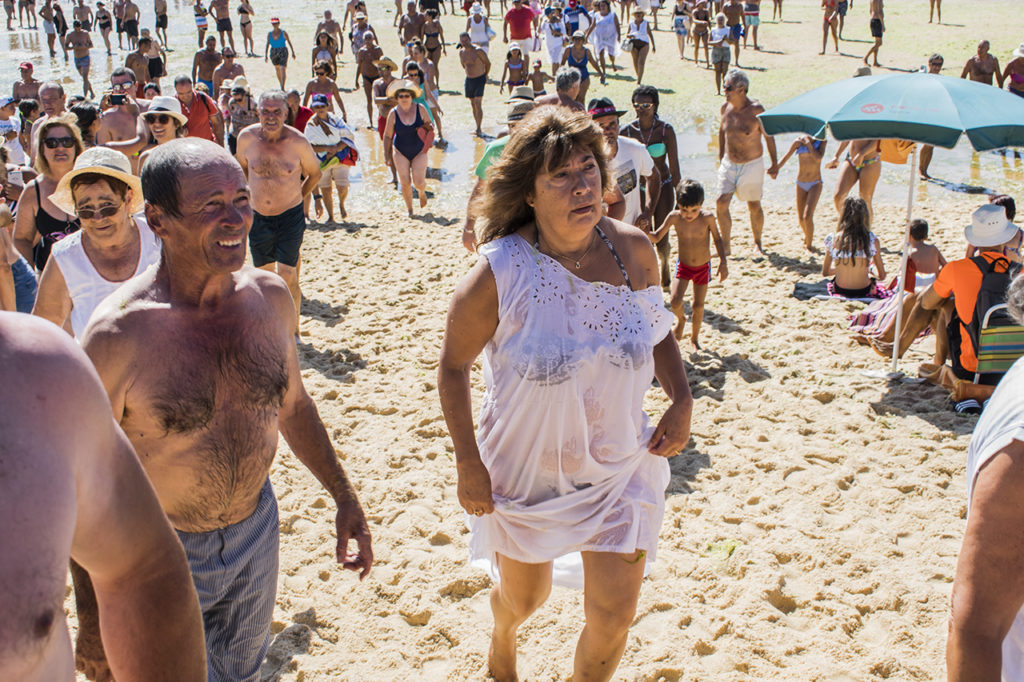
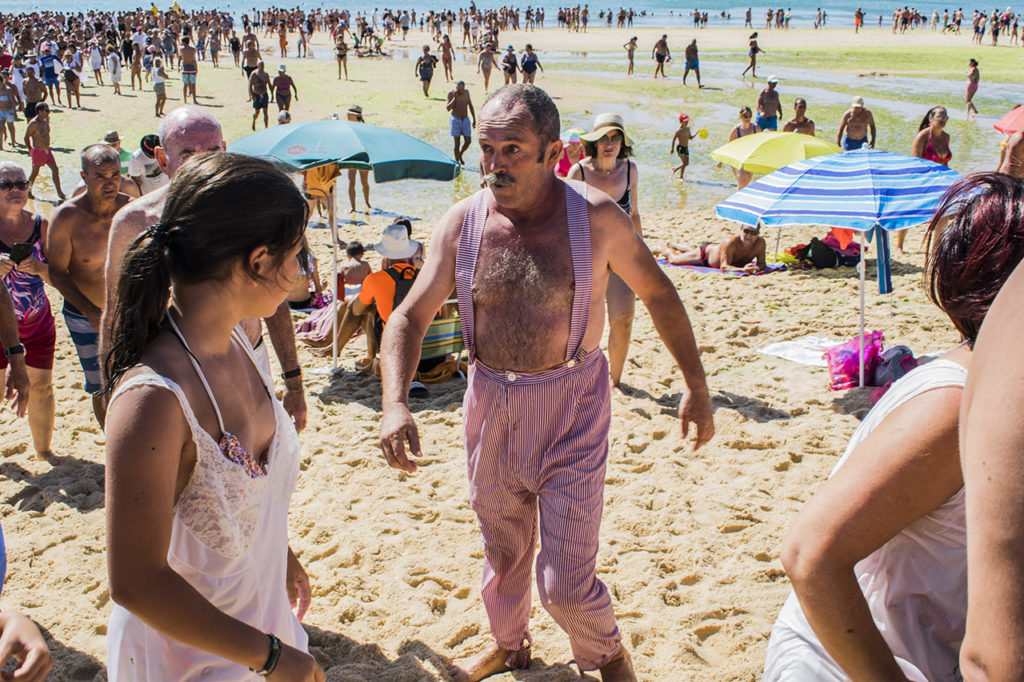
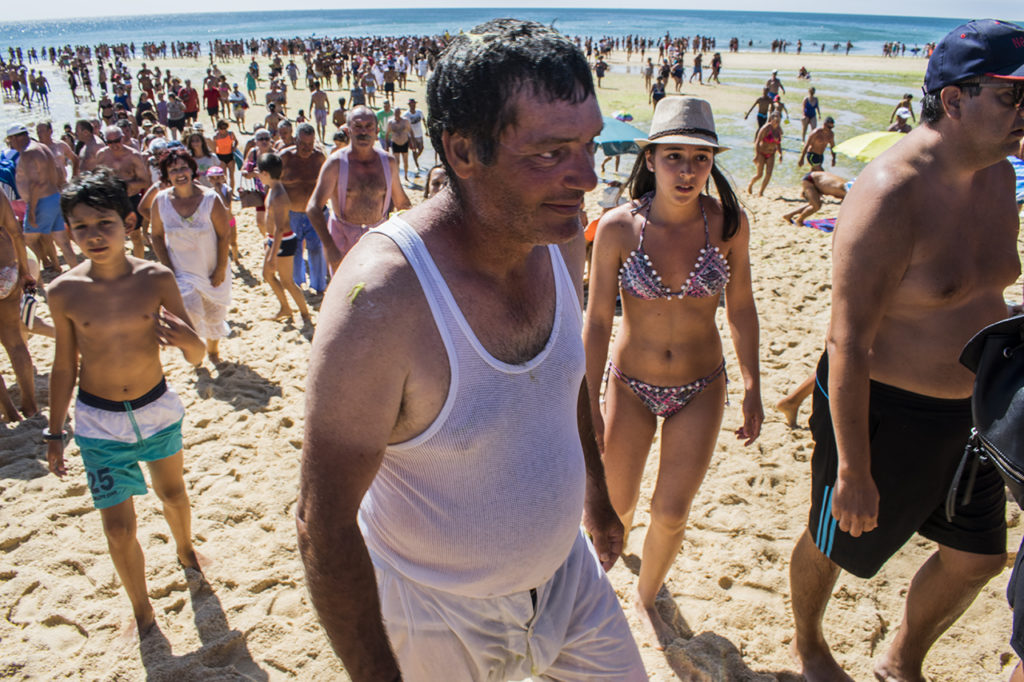
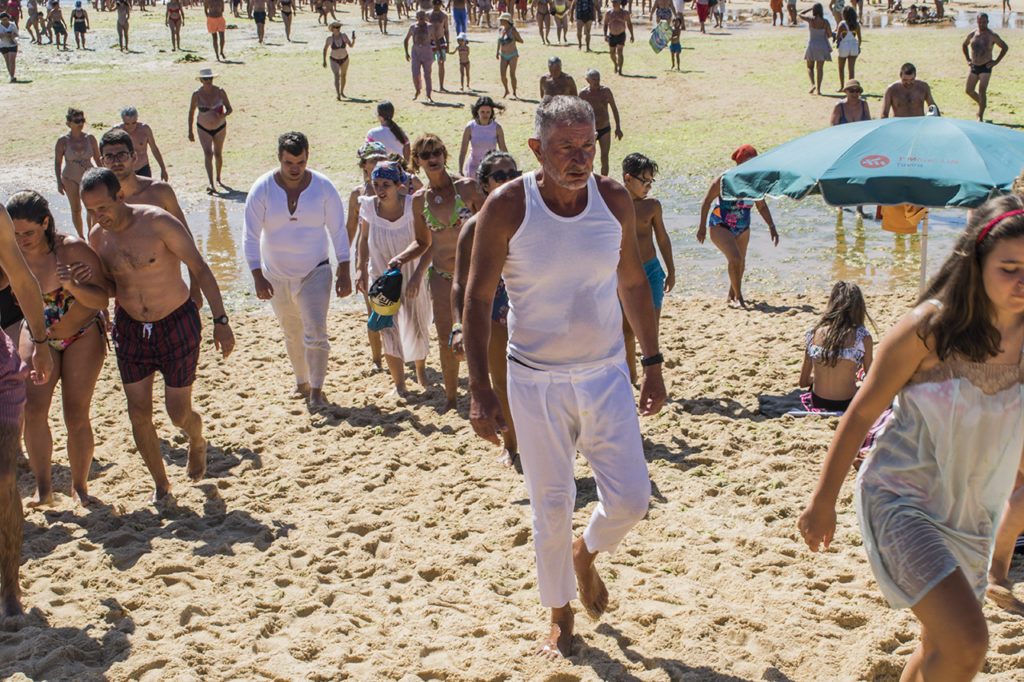

















Comments